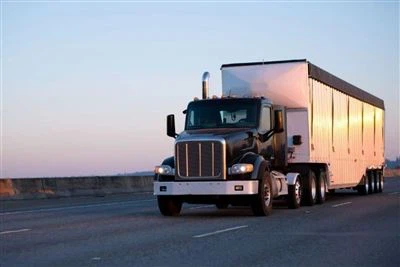Everything You Need to Know About Extra Cab Trucks

Extra cab trucks blend the utility of a full-size truck with added passenger space, making them a popular choice for families and work professionals alike. In this article, we’ll explore the ins and outs of extra cab trucks, their benefits, potential drawbacks, and tips for choosing the right one for your needs.
What is an Extra Cab Truck?
An extra cab truck features an extended cab that allows for additional seating behind the driver and front passenger seats. This configuration typically includes smaller rear doors for easier access to the back seats, making it ideal for transporting extra passengers or additional cargo.
Differences Between Extra Cab and Other Cab Configurations
| Cab Type | Description | Capacity |
|---|---|---|
| Regular Cab | Single row of seats with two doors | 2-3 passengers |
| Extra Cab | Extended cab with smaller rear seats and doors | 4-5 passengers |
| Crew Cab | Full-size four-door cab with spacious rear seating | 5-6 passengers |
Common Brands and Models of Extra Cab Trucks
Several manufacturers offer extra cab trucks, with popular models including:
- Toyota Tacoma Extra Cab
- Ford Ranger SuperCab
- Chevrolet Colorado Extended Cab
- Nissan Frontier King Cab
- RAM 1500 Quad Cab
Benefits of Extra Cab Trucks
1. Versatile Seating Capacity
Extra cab trucks are designed to accommodate additional passengers without compromising too much space in the cargo area. This versatility makes them well-suited for family trips or work-related travel where you may need to transport multiple individuals.
2. Enhanced Cargo Space
This type of truck generally maintains a decent bed size, which can be beneficial for those needing to carry tools, equipment, or outdoor gear while still having room for passengers. The extra cab layout provides extra storage options behind the front seats.
3. Fuel Efficiency
Compared to larger crew cab trucks, extra cab trucks tend to have better fuel efficiency due to their lighter build and smaller overall size. This can lead to savings on fuel costs, particularly for those who drive their trucks daily.
4. Affordability
Extra cab trucks usually come at a lower price point than their full-sized counterparts, making them a more budget-friendly option without sacrificing too much functionality. This can be appealing for both first-time buyers and those looking for an economical choice.

Drawbacks of Extra Cab Trucks
1. Limited Rear Space
While extra cab trucks provide additional seating, the rear space can be quite cramped, especially for taller passengers. This limited legroom might not be comfortable for long journeys.
2. Lower Resale Value
Extra cab trucks may experience a lower resale value compared to crew cabs. Potential buyers often favor the spaciousness of a crew cab model, making it harder to sell an extra cab truck later on.
3. Passenger Safety Concerns
The extra cab’s smaller rear doors and seats may pose safety concerns in the event of an accident. Parents with young children may prefer the additional safety features found in a full-size crew cab.
Practical Tips for Choosing the Right Extra Cab Truck

1. Assess Your Space Needs
Consider how many passengers you typically need to transport and whether ample cargo space is needed. If you frequently carry more than two passengers, you might want to explore crew cab options as well.
2. Test Drive Multiple Models
It’s essential to test drive different extra cab models to get a feel for their size, comfort, and handling. Each manufacturer may have a different design, and personal comfort can vary significantly.
3. Check Safety Ratings
Look into safety features and ratings from organizations like the National Highway Traffic Safety Administration (NHTSA) or Insurance Institute for Highway Safety (IIHS). Ensuring the truck’s safety features meet your expectations is vital.
4. Consider Ownership Costs
Evaluate ongoing expenses, including insurance, maintenance, and fuel. Some models may have better warranties or lower replacement parts costs.
Extra Cab Truck Maintenance Tips
1. Regular Oil Changes
Maintain a consistent oil change schedule as per the manufacturer’s guidelines. Regular oil changes help increase engine longevity and efficiency.
2. Tire Care
Inspect tires regularly for wear and tear. Rotating tires and maintaining proper tire pressure can improve handling and fuel efficiency significantly.

3. Brake and Battery Checks
Keep an eye on brake performance and battery health. Upgrading to high-quality brake pads can enhance stopping power, while regular battery checks ensure reliability.
4. Cleaning and Detailing
Regular cleaning can prolong the life of your truck’s exterior and interior. Waxing helps protect the paint and prevents rust, while a clean interior keeps the cabin smelling fresh and pleasant.
Extra Cab Trucks for Work and Play: Practical Uses
1. Commercial Uses
Many tradespeople prefer extra cab trucks for their maneuverability and ability to transport tools and supplies, making them ideal for electricians, plumbers, and contractors.
2. Off-Road Adventures
Extra cab trucks often have the utility to tackle off-road conditions while having enough passenger space for weekend getaways, outdoor camping, or mountain biking trips.
3. Family Activities
Families use extra cab trucks for weekend outings, from soccer practices to grocery runs, making it a versatile vehicle for both everyday and recreational activities.
Comparison Between Extra Cabs and Crew Cabs
| Feature | Extra Cab | Crew Cab |
|---|---|---|
| Seating Capacity | 4-5 passengers | 5-6 passengers |
| Rear Seat Space | Limited | Spacious |
| Bed Size | Typically larger | Typically smaller |
| Price Range | More affordable | More expensive |
Cost Analysis: Buying vs. Leasing Extra Cab Trucks
1. Purchase Costs
Buying an extra cab truck means incurring upfront costs but potentially benefiting from long-term equity in the vehicle. Consider parameters such as interest rates, credit scores, and dealer incentives.
2. Leasing Costs
Leasing typically involves lower monthly payments, and you may be able to drive a new model every few years. However, keep in mind the mileage limits and additional wear-and-tear fees.
3. Depreciation
Purchased vehicles depreciate over time, affecting resale value. Leasing involves returning the vehicle at the end of the term, so depreciation is generally less of a concern.
Frequently Asked Questions (FAQ)
1. What is the maximum seating capacity for an extra cab truck?
Extra cab trucks can typically seat 4-5 passengers, depending on the model and year.
2. Are extra cab trucks fuel-efficient?
Yes, extra cab trucks usually offer better fuel efficiency than full-size crew cabs due to their lighter build and smaller size.
3. Can I fit a car seat in the back of an extra cab truck?
Yes, but it’s essential to check the rear seat space and accessibility to ensure comfort and safety when installing car seats.
4. Are extra cab trucks good for towing?
Yes, many extra cab trucks are designed for towing and can handle a respectable towing capacity, but it’s important to check the specifications of the particular model.
5. Do all extra cab trucks have four-wheel drive options?
Not all extra cab trucks come with four-wheel drive; check individual models as availability varies among manufacturers.
6. What kind of maintenance do extra cab trucks require?
Extra cab trucks require regular maintenance similar to any truck, which includes oil changes, tire rotations, and brake checks.
